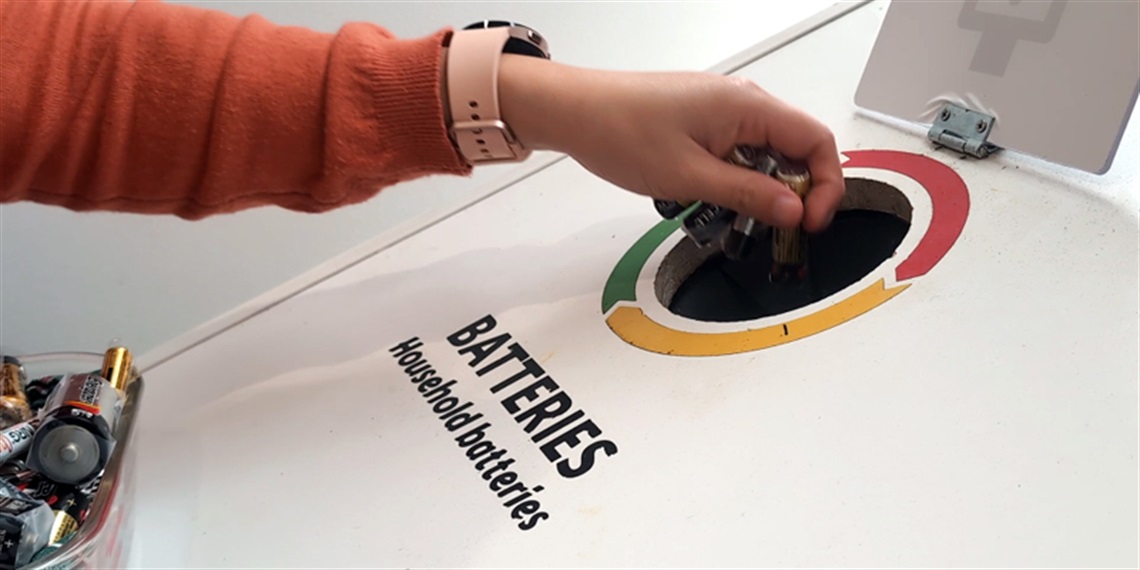Batteries are one of the top five most dangerous waste items
Published on 01 August 2024

Never put batteries in your general waste or recycling bins as they can cause a major fire risk in your bins, waste trucks or facilities. They can also release toxic chemicals and harm the soil and groundwater if they are sent to landfill.
Instead, give them a second life and recycle your batteries at a drop-off point listed below. Collected batteries are separated into different types of metals and plastics, which are then remanufactured into new batteries or used in other industries. Did you know that an astounding 95% of battery parts can be recycled?
Follow this simple guide to store and recycle your batteries safely:
-
Tape your batteries
Once your batteries reach the end of life, we recommend using clear sticky tape to cover the terminals. This will reduce the risk of a fire. A battery terminal is the electrical connection point of the battery, which can spark and catch fire if it touches another battery terminal. Find out how to tape different types of batteries on B-cycle's website.
-
Store your used batteries properly
Collect and store all used batteries in a small container and do not leave it airtight to prevent pressure from building up. Do not use a metal container, or store batteries with metal objects, as they can spark and cause a fire hazard.
-
Take them to drop-off points
Take the batteries to one of the nearest drop-off points such as Council’s Problem Waste Stations and Community Recycling Centre or by searching on B-Cycle to recycle.
So don’t throw your batteries in your bin and protect everyone by recycling properly at one of the drop-off points.